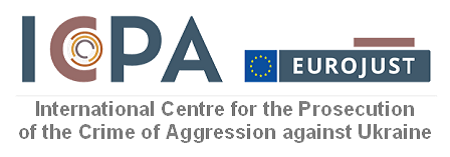Today, the International Centre for the Prosecution of the Crime of Aggression against Ukraine (ICPA) started its operations in the Hague, hosted by the European Union Agency for Criminal Justice Cooperation (Eurojust). The newly established Centre will be key to investigate Russia`s crime of aggression against Ukraine and facilitate case building for future trials. It will provide a structure to support and enhance ongoing and future investigations into the crime of aggression and contribute to the exchange and analysis of evidence gathered since the start of the Russian aggression.
The Centre, set up with the Commission`s support, is composed of selected national prosecutors that are already participating in the Joint Investigation Team, to which the Centre is linked in its operations. The participating experts will be able to work together daily, exchange evidence quickly, and agree on a common strategy. Eurojust will provide operational, legal, financial, and logistical support, including for preserving, storing, and analysing evidence. This work is essential to prepare for future trials, be it before national or international courts, including a possible tribunal for the crime of aggression or the International Criminal Court (ICC) for crimes within its jurisdiction.
President Ursula von der Leyen said: “Russia`s invasion of Ukraine continues to bring unspeakable horrors, every day. Deeply worrying news about deliberate attacks against civilians, including children, have become a cruel daily reminder of the bloodshed that Putin brought back to our continent. Evidence of countless international crimes committed by Russia is piling up. The new international prosecution centre will play a key role in making sure that the perpetrators are brought to justice, including for the crime of aggression. We will leave no stone unturned to hold Putin and his henchmen accountable.”
Next steps
The Centre will begin operating as of today. Eurojust will work closely with the Commission and the members of the Joint Investigation Team to ensure that the Centre can provide the best possible support to national authorities.
Background
The International Criminal Court (ICC) is competent to prosecute the gravest international crimes (genocide, crimes against humanity and war crimes and the crime of aggression). However, at the moment, the ICC cannot prosecute Russia for the crime of aggression, since Russia is not a State party to the ICC. To close this gap, in November 2022 the Commission presented optionsEN••• to the Member States to guarantee that there is full accountability for all crimes committed in Ukraine. These options explored the possibility of establishing an accountability mechanism to allow the prosecution of the crime of aggression.
While discussions continue, in particular within the Core Group on the establishment of the Special Tribunal, it is crucial to ensure that the relevant evidence is properly secured, and that investigations can begin within the existing legal frameworks.
The evidence collected by the Centre could be used before other jurisdictions, including national and international courts, including a possible tribunal for the crime of aggression or the International Criminal Court (ICC) for crimes within its jurisdiction.
Prosecutors from the members of the Joint Investigation Centre will be relocated to Eurojust, where they can work together on a daily basis. The prosecutors will be supported by legal and analytical experts from Eurojust. Evidence identified can be stored securely in Eurojust`s Core International Crimes Evidence Database, established following the changes to the Eurojust RegulationEN••• based on the Commission`s proposal to amend Eurojust`s regulation.
For more information
Statement by President von der Leyen on the establishment of the International Centre for the Prosecution of Crimes of Aggression against UkraineES•••
EU Solidarity with UkraineEN••• – Website
Eurojust and the war in Ukraine – Website
Image: Logo of the ICPA. Source: EuroJust.














